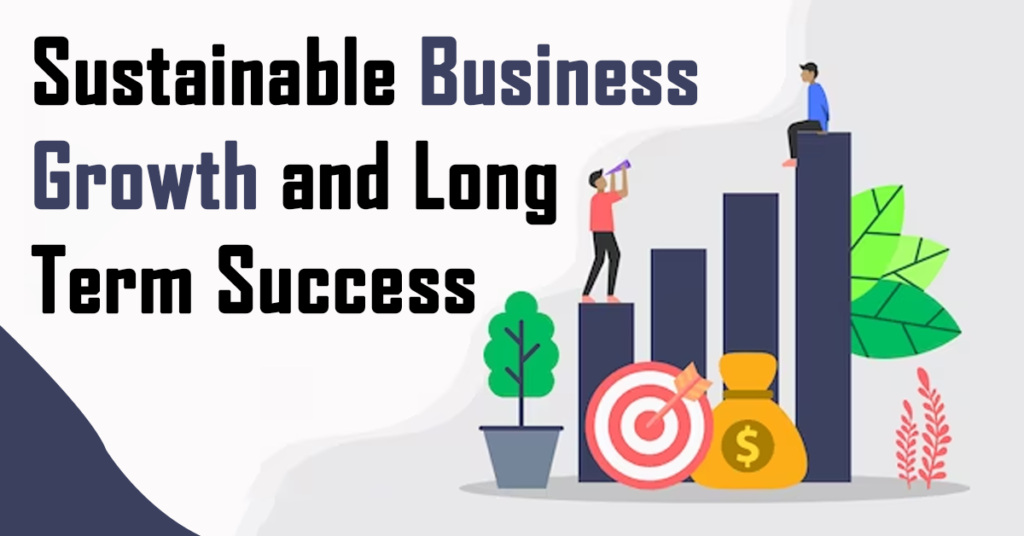In today’s competitive market, many businesses face challenges that hinder their growth. For struggling businesses, the path to revitalization often lies in adopting sustainability. Embracing sustainability not only helps the environment but also enhances a company’s reputation, reduces costs, and attracts a loyal customer base. By integrating sustainable practices into their operations, businesses can unlock new growth opportunities and ensure long-term success.
Sustainability is no longer just a buzzword; it’s a vital strategy for modern businesses. Struggling businesses can start by evaluating their current practices and identifying areas where they can implement sustainable solutions. For instance, reducing waste through recycling programs and minimizing energy consumption by utilizing energy-efficient technologies can significantly cut operational costs. These savings can then be reinvested into the business to drive growth.
Another key aspect of sustainability is sourcing materials responsibly. Businesses that prioritize sustainable sourcing can differentiate themselves in the market. By choosing suppliers who adhere to ethical and environmental standards, companies can ensure that their products are not only high-quality but also sustainable. This commitment to sustainability resonates with consumers who are increasingly conscious of the environmental impact of their purchases. Highlighting sustainable sourcing in marketing efforts can attract a dedicated customer base that values ethical practices.
Sustainability also extends to product design. Struggling businesses should consider developing eco-friendly products that meet the growing demand for sustainable options. Products made from recycled materials or designed for longevity appeal to environmentally conscious consumers. By offering sustainable products, businesses can tap into new markets and boost sales. Furthermore, transparent communication about the sustainability of products builds trust and loyalty among customers.
Employee engagement is another critical component of sustainability. Businesses that foster a culture of sustainability within their workforce can boost morale and productivity. Encouraging employees to participate in sustainability initiatives, such as reducing office waste or supporting community environmental projects, creates a sense of purpose and pride. A motivated workforce that believes in the company’s sustainability goals is more likely to contribute to its success and growth.
Incorporating sustainability into the supply chain is also essential. Struggling businesses can benefit from evaluating their supply chain processes and finding ways to make them more sustainable. This could involve optimizing logistics to reduce carbon emissions or partnering with eco-friendly transportation providers. A sustainable supply chain not only reduces environmental impact but also improves efficiency, leading to cost savings and enhanced operational performance.
Marketing sustainability efforts effectively can further boost growth. Businesses should leverage digital platforms to share their sustainability journey with a wider audience. Creating engaging content that highlights sustainable practices, achievements, and goals can attract positive attention and enhance brand reputation. SEO-friendly blog posts, social media updates, and videos that focus on sustainability can drive traffic to the company’s website and increase customer engagement.
Moreover, sustainability can open doors to new business opportunities. Many organizations and governments are prioritizing partnerships with businesses that demonstrate a commitment to sustainability. By positioning themselves as leaders in sustainable practices, struggling businesses can attract collaborations and contracts that contribute to growth. Participating in sustainability-focused events and networks can also expand a company’s reach and influence.
In conclusion, adopting sustainability is a powerful strategy for struggling businesses aiming to boost growth. By integrating sustainable practices into every aspect of their operations, from sourcing to product design to supply chain management, businesses can reduce costs, attract loyal customers, and enhance their reputation. Employee engagement and effective marketing of sustainability efforts further amplify these benefits. Embracing sustainability not only addresses environmental concerns but also ensures long-term success and competitiveness in the market. By making sustainability a core part of their business strategy, struggling businesses can transform their challenges into opportunities for sustainable growth.
#EnablingSustainability #HappyBrands
#HappyBrands Brand Growth Survey: https://shorturl.at/GKsn4
#HappyBrands Content Fest 2024: https://shorturl.at/cipT5
#HappyBrands: https://happybrands.live






